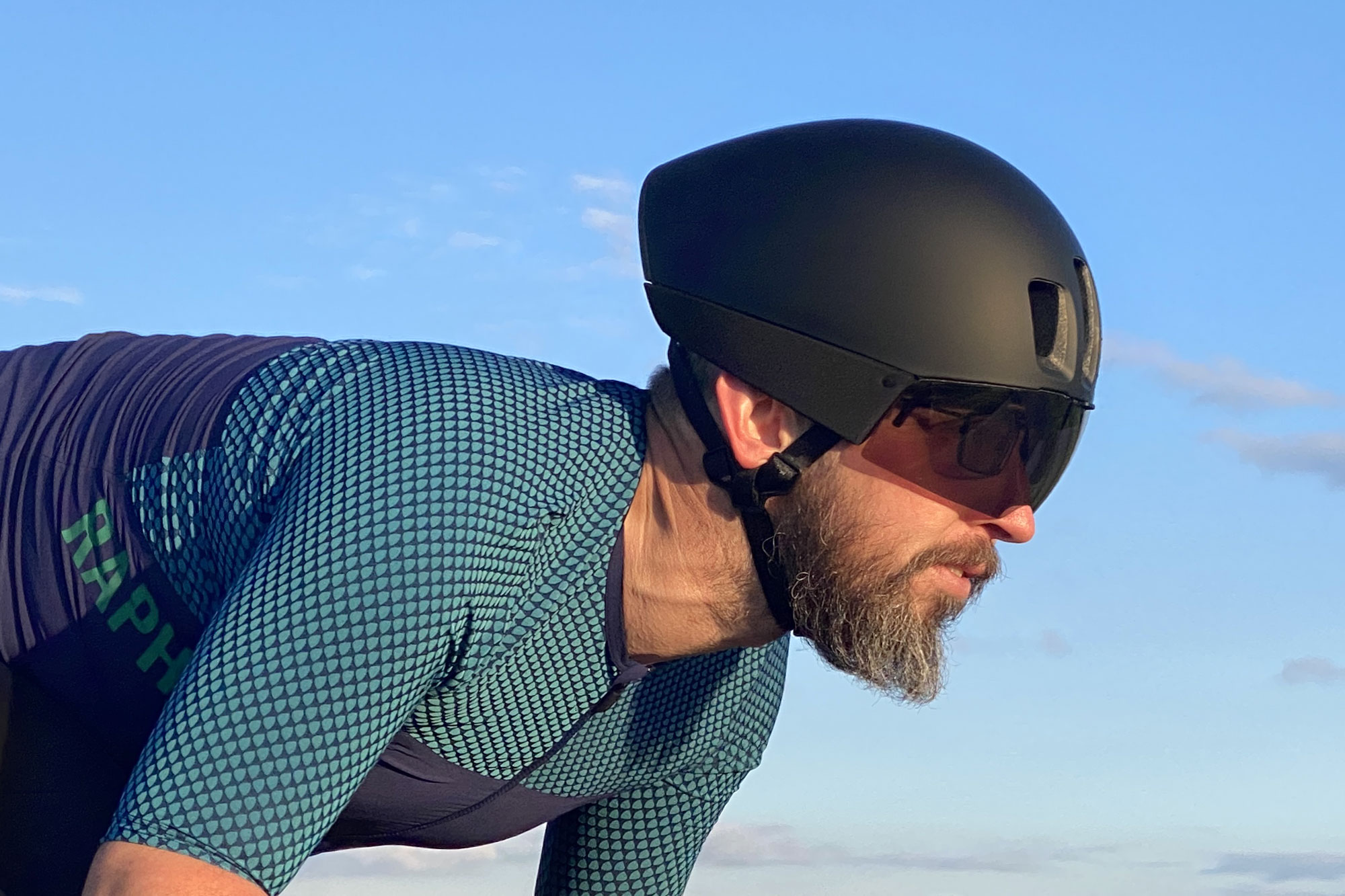POC’s all-new Procen Air aero road helmet takes obvious design cues from time trial. But it dials it back just a notch, to blur those aerodynamic lines enough to drop back into all-rounder road bike riding versatility. There’s no doubt that this will be one of the most contentious helmets in your weekly group ride.
But in reality, it feels great – both light and well-vented. Its magnetic snap-in integrated lenses/visors offer great protection and clear views. The partial ear covers seem to effectively tune out some wind noise without blocking peripheral sounds.
And POC promises that it will make you faster…
POC Procen Air aero road helmet with time trial aerodynamics
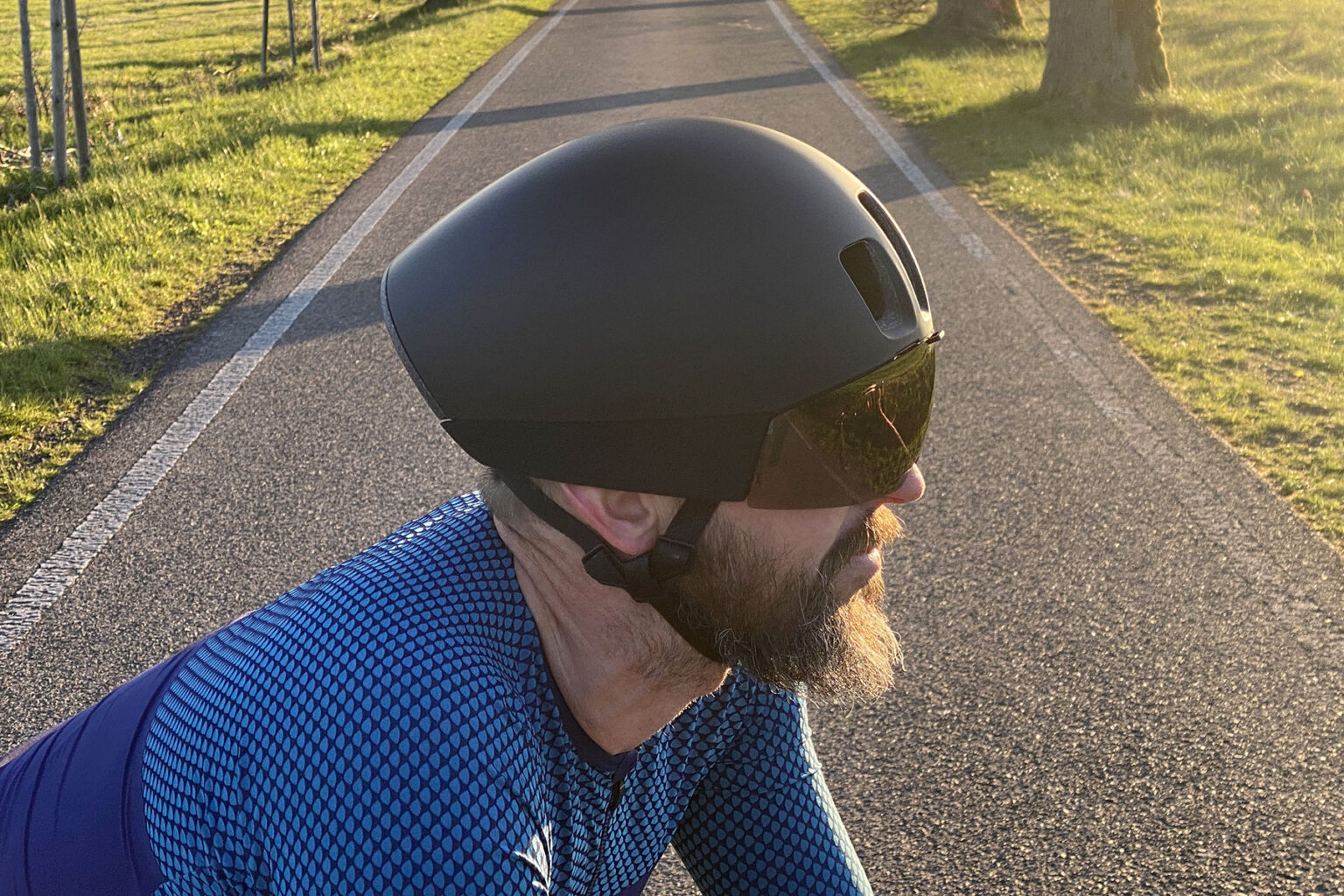
I’ve been riding in it for a week. EF Pro Cycling has already been racing with the new POC Procen Air mini aero road helmet since the start of the season. With the EF Education-Cannondale women already taking 7 pro wins this season wearing the new lid. It is essentially a pared-back version of the Procen TT helmet that POC launched last spring.
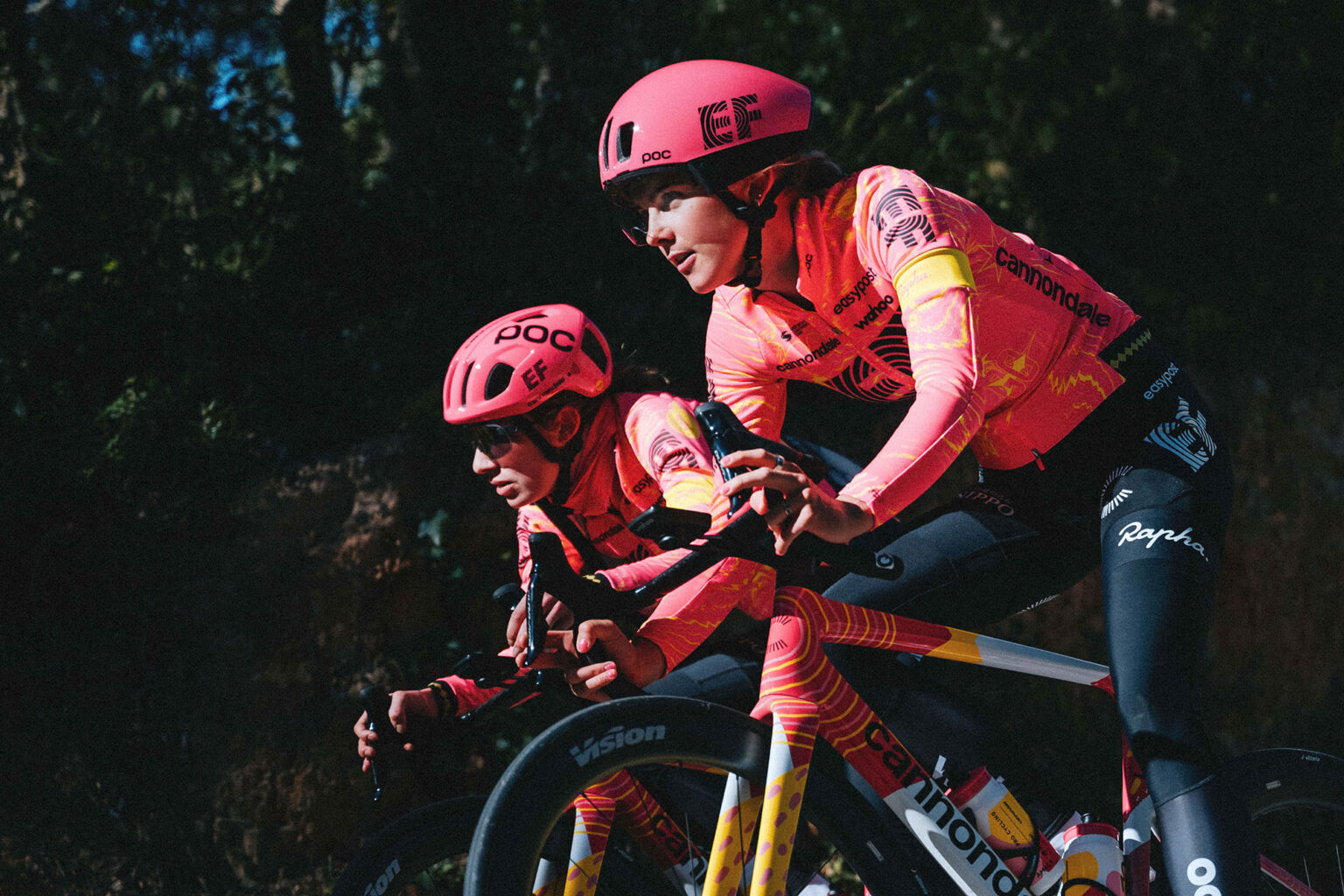
With a slightly smaller visor that still offers eye protection and better vision than sunglasses. And to not limit the ability to hear everything happening around you, reduced side coverage, which also manages to cut down on wind noise by only covering the top half of your ear.
In fact, it is a direct result of the EF Pro Cycling development collaboration on that time trial helmet. Seeing how the Procen’s simple 3 vent openings could reduce the peak air pressure at the front of the helmet, and then so effectively provide internal ventilation with Venturi effect airflow, the team immediately wanted an all-rounder road version…
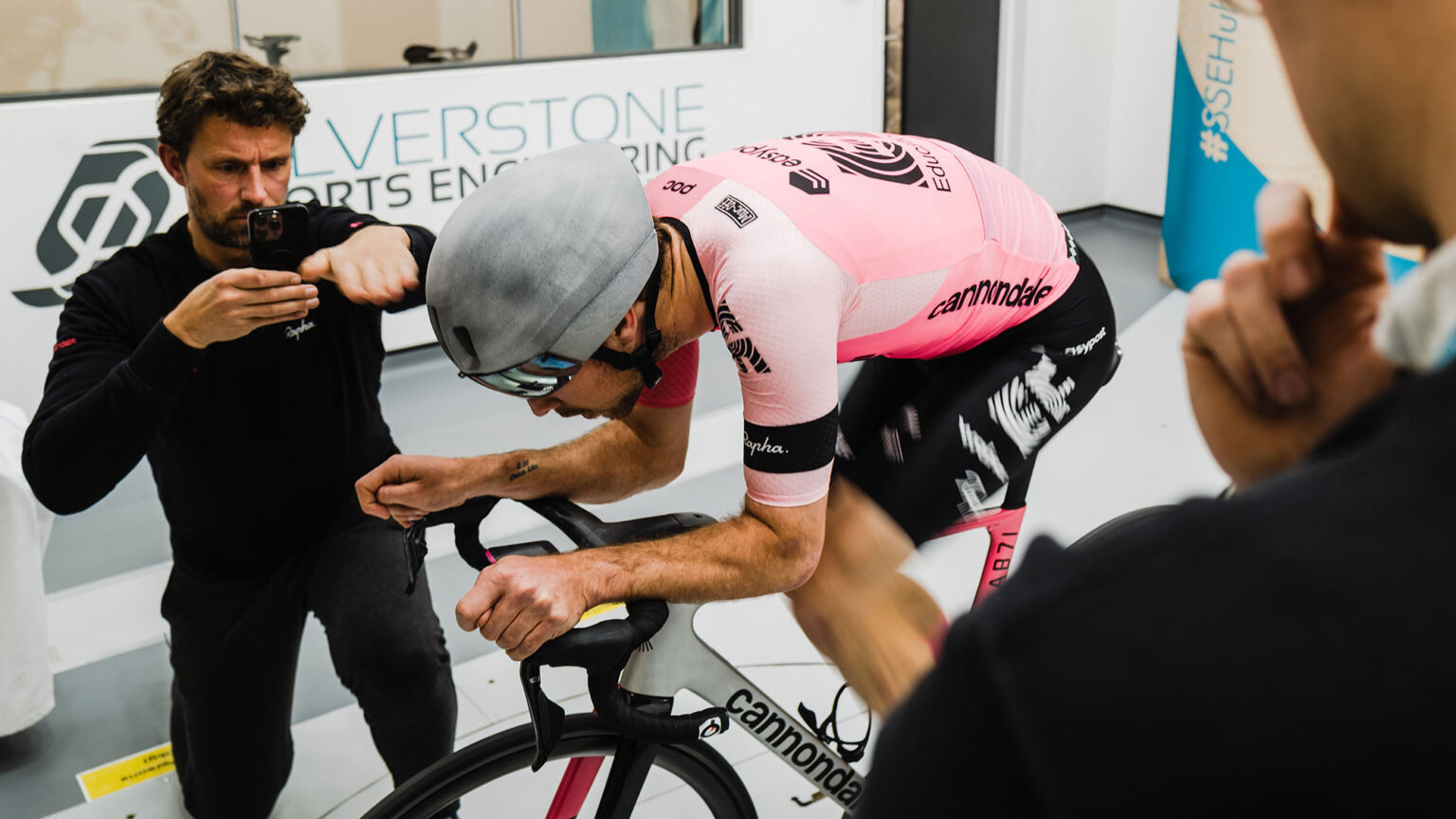
“After we developed the technique to allow more airflow through an aerodynamic TT helmet, the Procen, we thought, ‘Hey! This is going to solve a lot of our limitations.’ …It was then just a matter of fine-tuning to ensure that a rider would be adequately cooled and would hear and see well so they could know what was happening behind them and around them. Safety is always number one. With that in mind, we were able to develop this helmet. It is certainly significantly faster.”
– Peter Schep, EF Pro Cycling Performance Director
The result is that the frontal profile of the new Procen Air is virtually identical to the Procen. But the Procen Air gets a shorter chopped tail and greatly reduced side coverage. POC’s Magnus Gustavsson calls it “a helmet with all the watt savings of a TT helmet, not compromising safety and improving a rider’s ability to hear and see“.
How much faster is it?
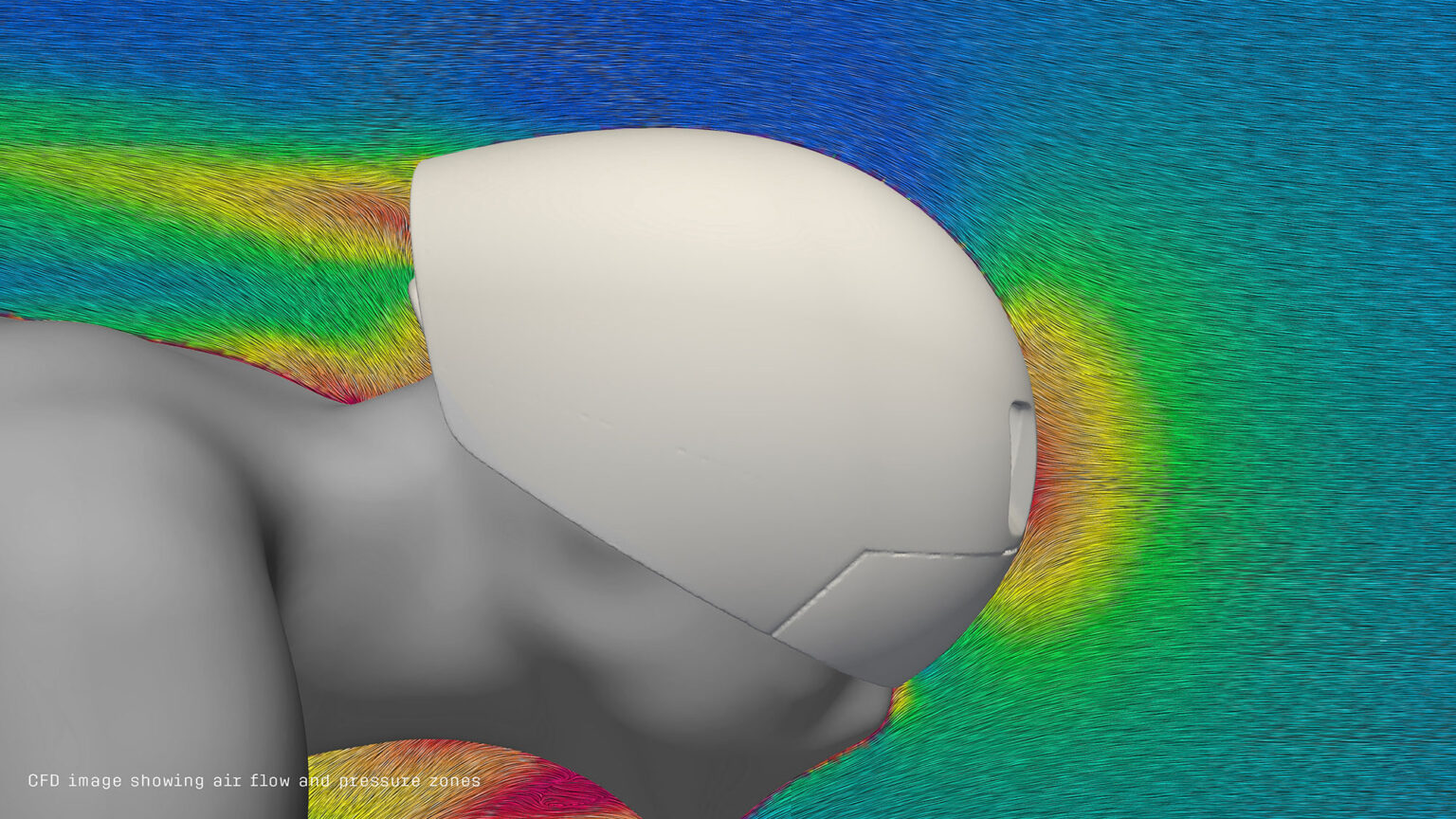
POC explains that “The openings at the front of the Procen Air drain the high-pressure zone, which reduces stagnant air and additional air resistance that a rider needs to push through.” POC designed it in CFD and backed that up with wind tunnel testing.
Comparing it to the vented aero Ventral, POC says the Procen Air is significantly more aerodynamic. Aero gains range from 5W saved at “low speed” to an 18W reduction at “high speed” – approximately 30-60km/h according to POC’s time in the wind tunnel.
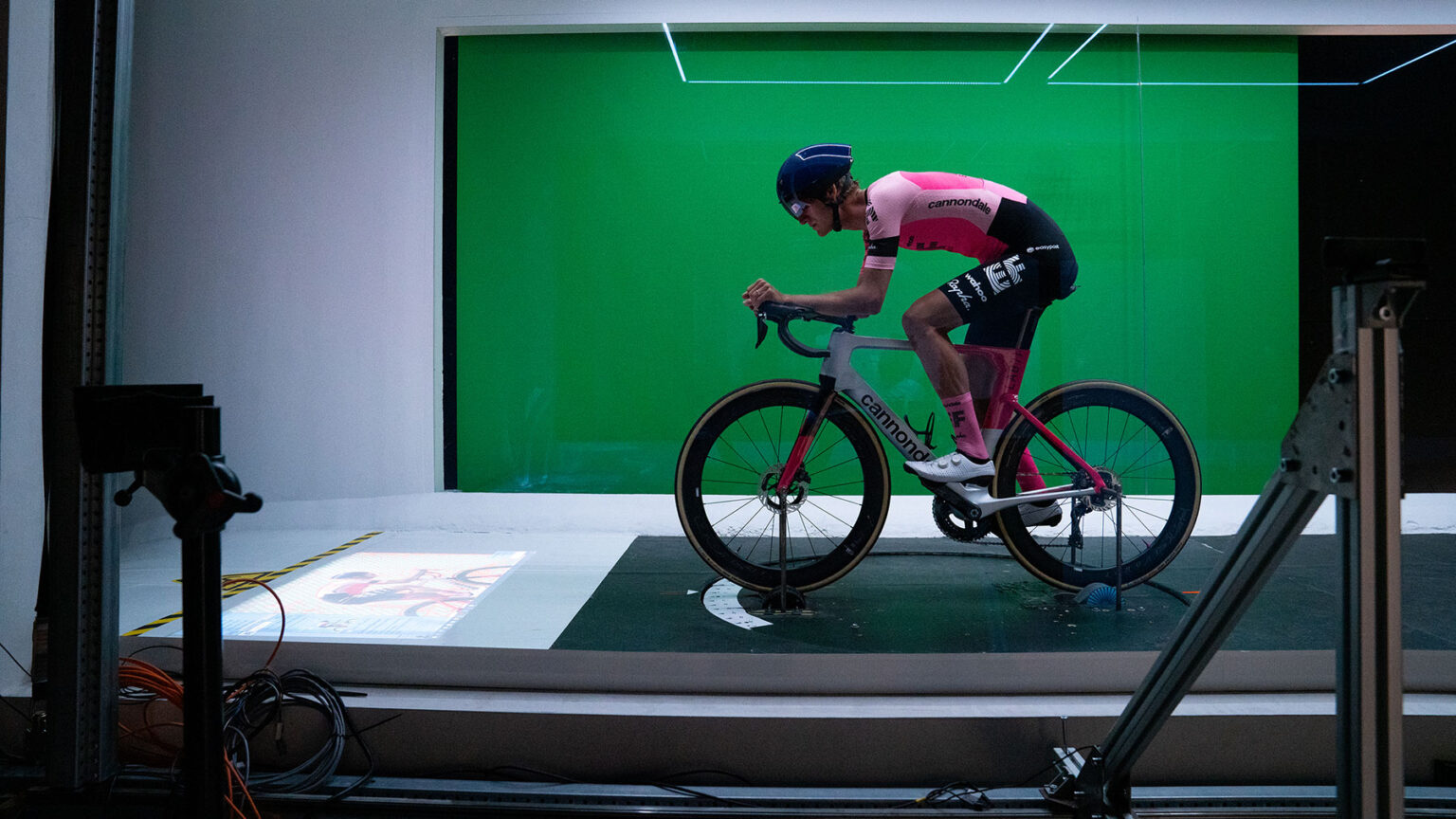
How much time does that actually save? Looking at EF Cycling rider Alberto Bettiol’s 30km solo attack to win Milan Torino in March, the team calculated that his 39-minute effort at an average of 46.5 km/hr was reduced by just over 10 seconds solely based on his Procen Air helmet choice vs. the already aero Ventral. Or you can equate those seconds saved to more than a 150m gap at the end of a sprint to the finish line.
Tech details
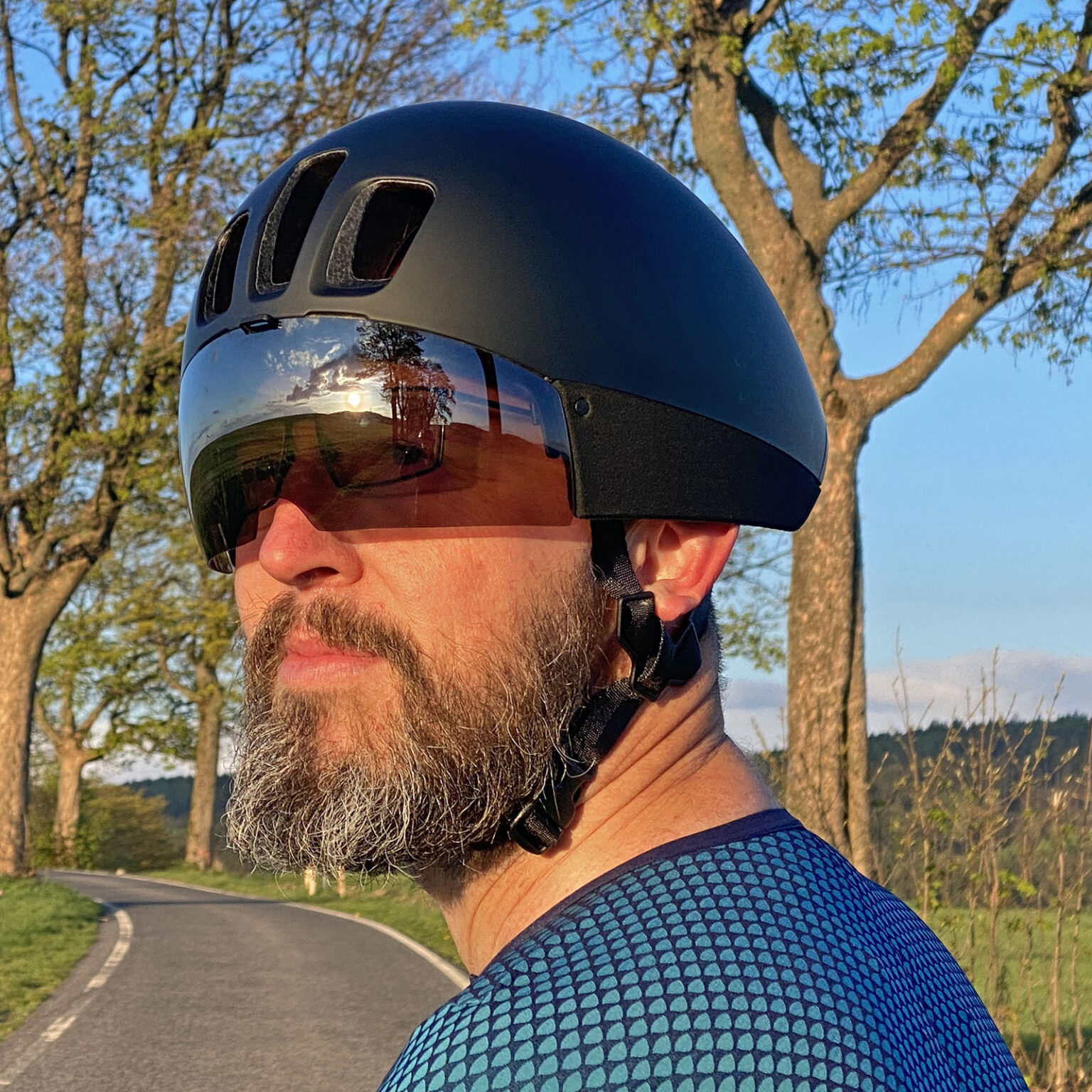
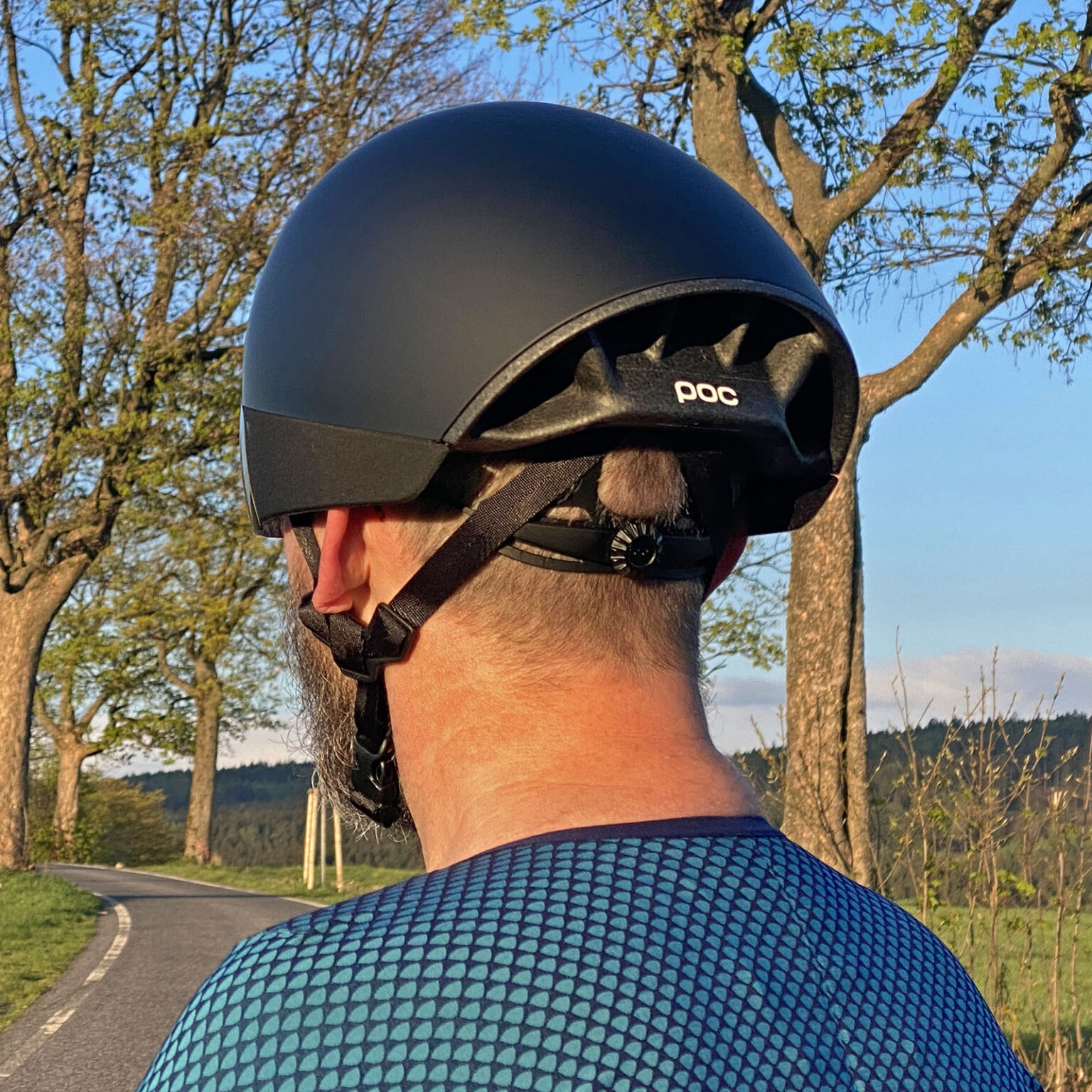
This all-new POC Procen Air aero road helmet features traditional in-mold construction with a 1-piece polycarbonate shell over its EPS foam. The partial ear cover cowls are made of a flexible EVA foam core with a soft fuzzy inner face and aero fabric outer. They are technically removable (with a snap and velcro holding them in place) so they can be cleaned separately if needed.
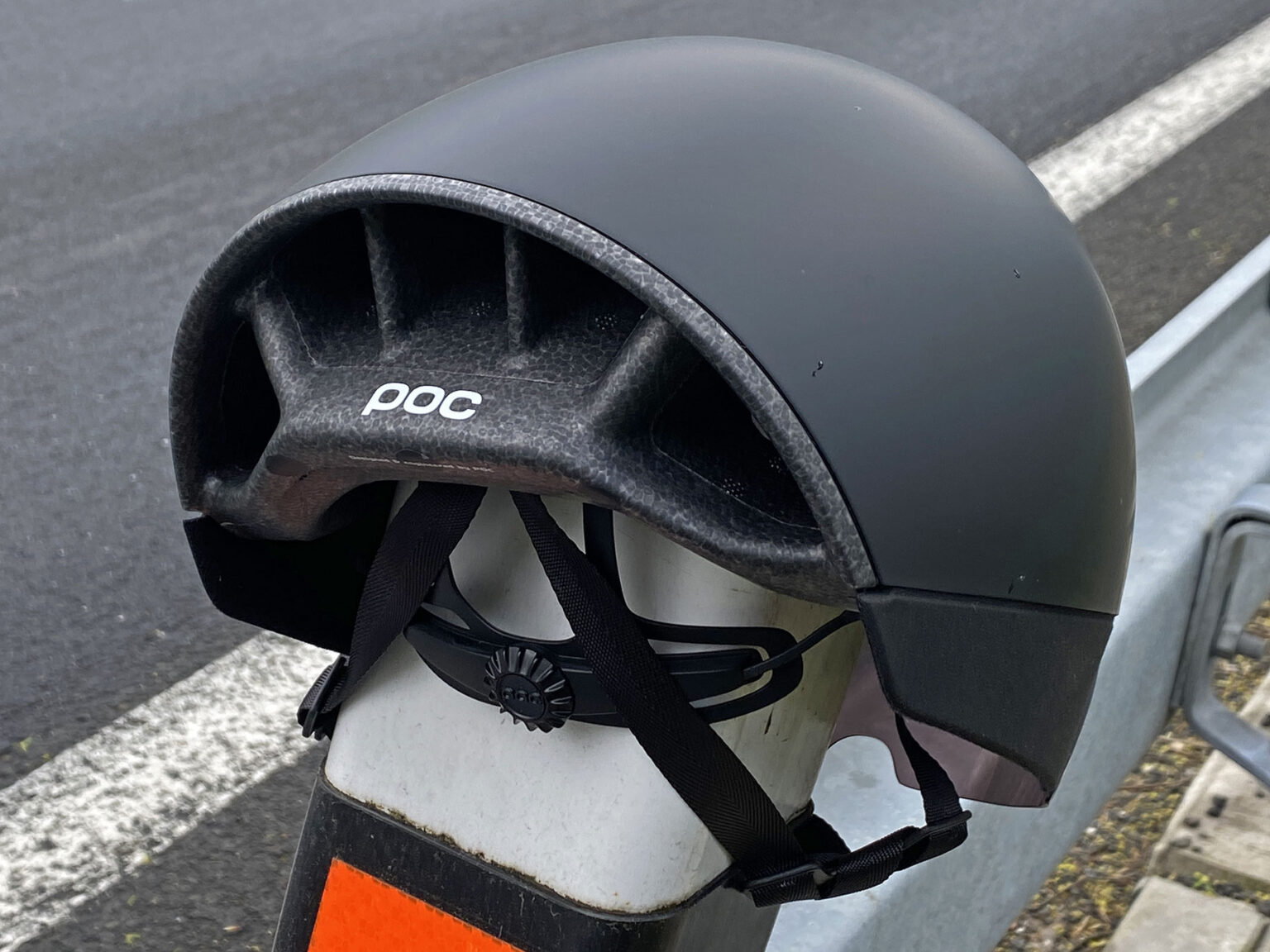
Inside deep front-to-back channels control airflow. 3 front openings connect to 5 exhaust ports at the back.
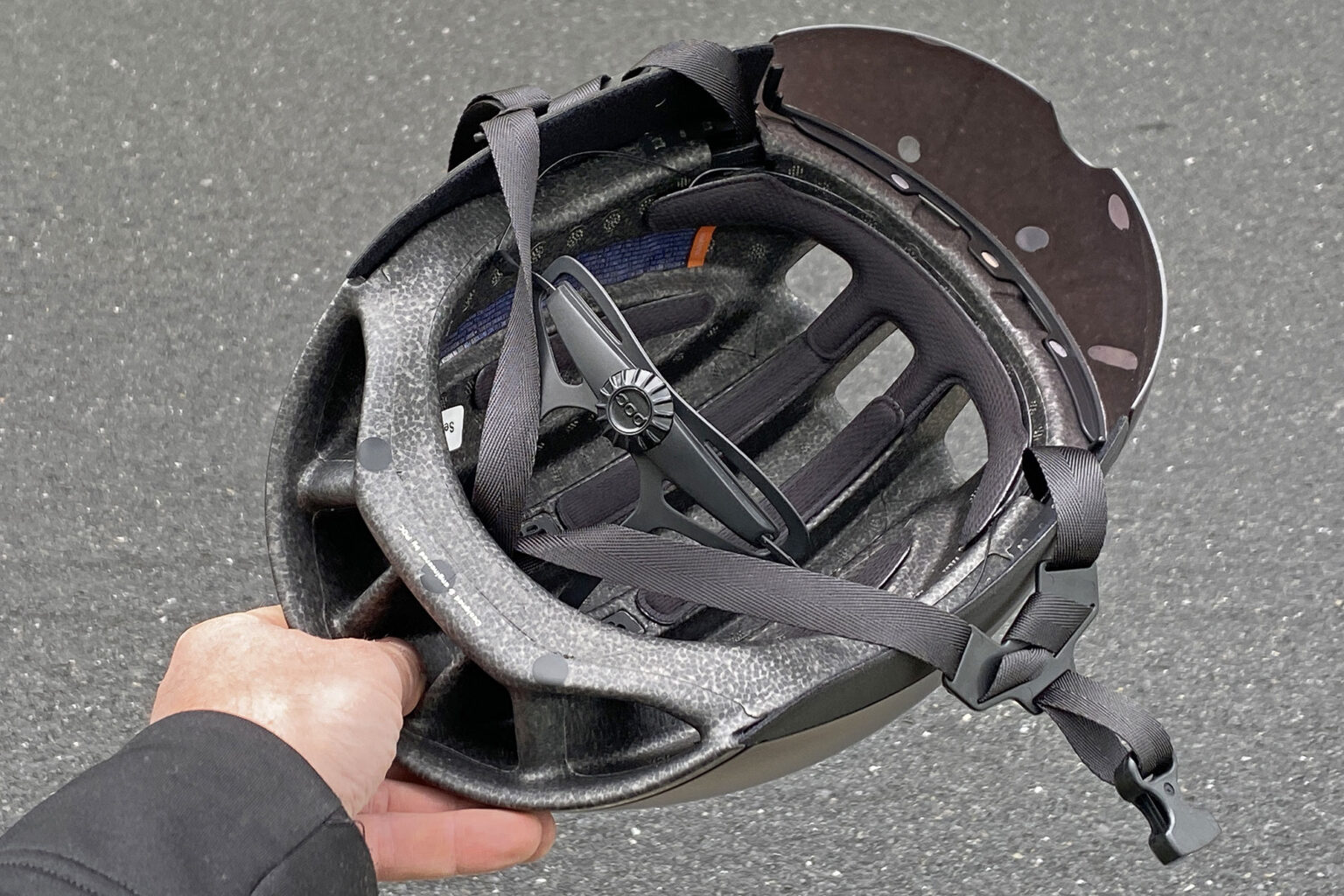
It features the same lightweight pads and 360° wrap fit adjustment as Lite-series helmets (like the Ventral Lite & Omne Lite). No MIPS. Plus, light adjustable webbing straps and a basic plastic buckle.
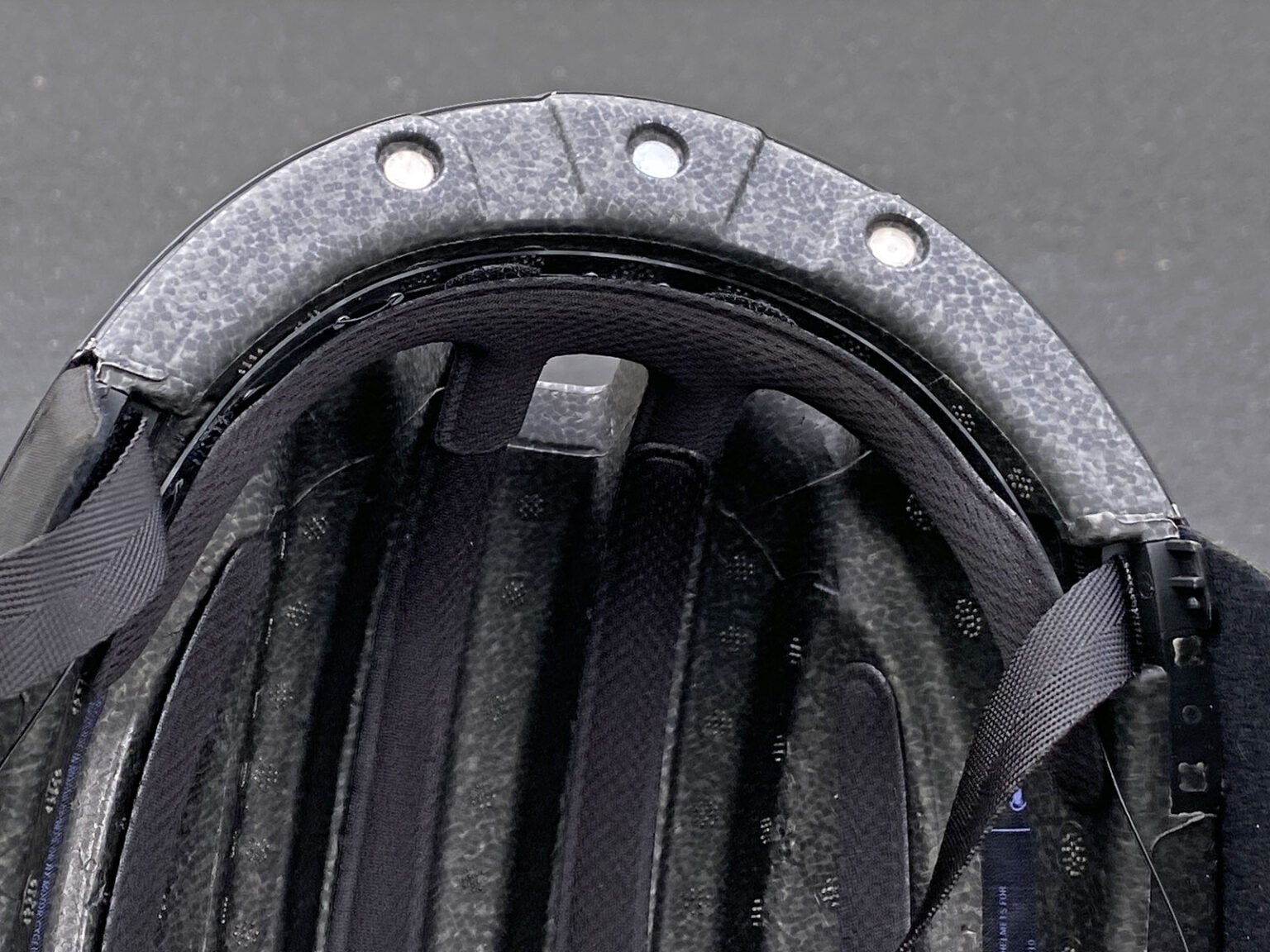
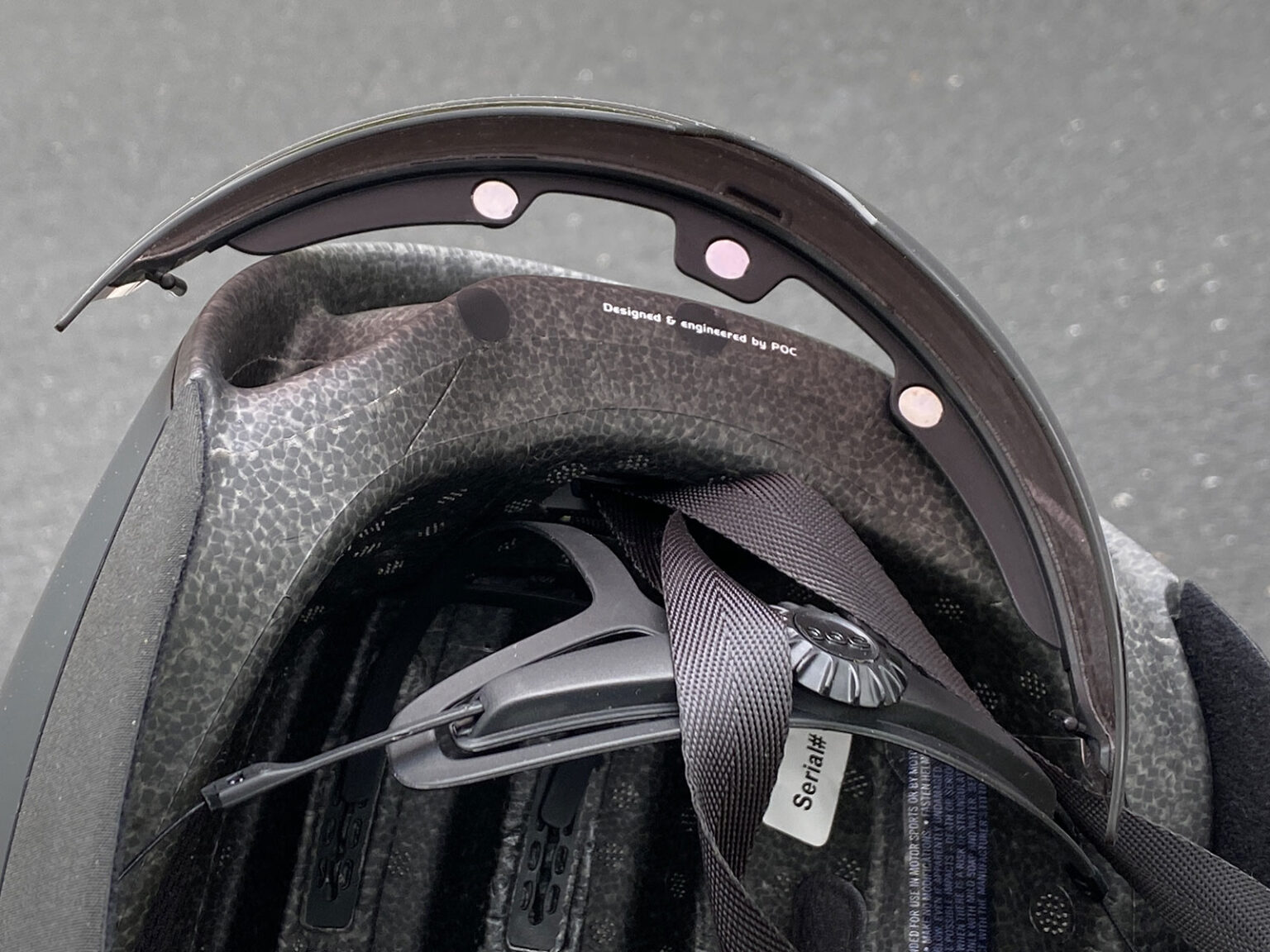
3 embedded magnets securely mate with 3 more in the removable visor for a secure automatic fit. Plus, 3 more molded into the rear of the helmet let you stow the visor when you need to remove it.
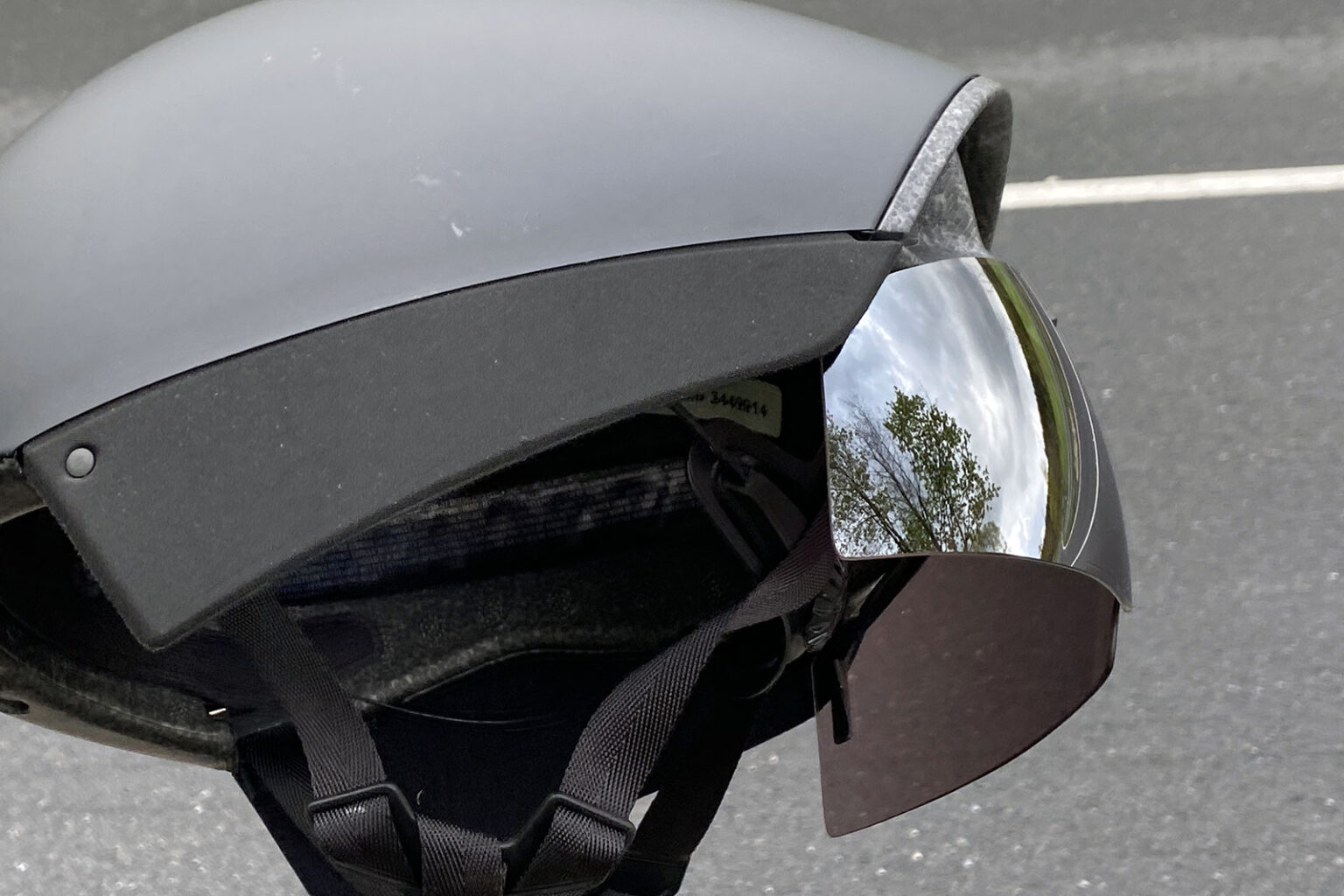
But manage to keep it out of the way even in an aero tuck.
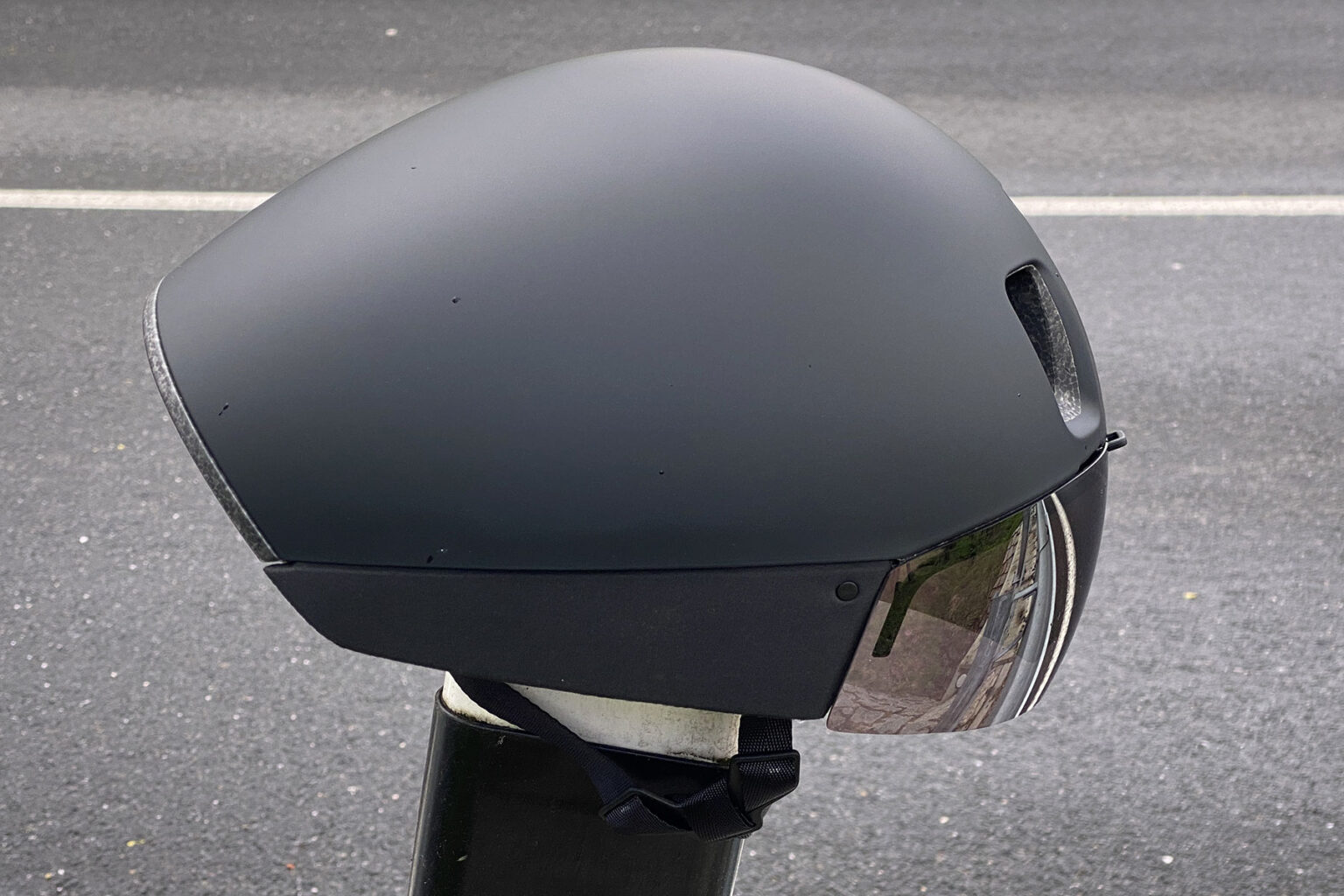
The Procen Air is available worldwide with locally appropriate certifications, including EN 1078, CPSC, AS & NZS 2063. It has a claimed weight of 350g for an EN-certified medium, presumably with the visor.
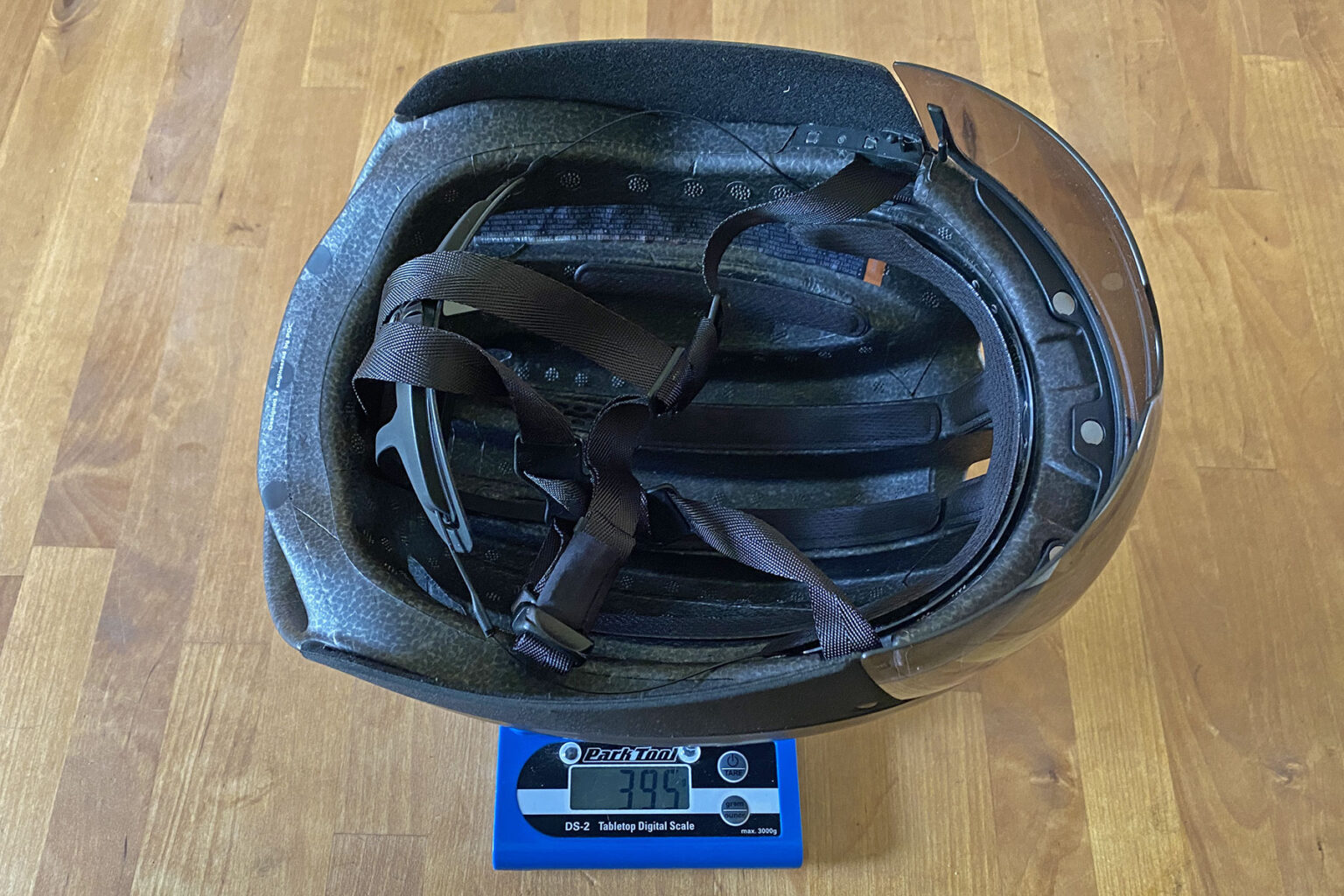
The US CPSC-certified medium is claimed to weigh 3 390g. My CPSC medium weighs an actual 395g with the visor attached, 32g less without.
First Impressions
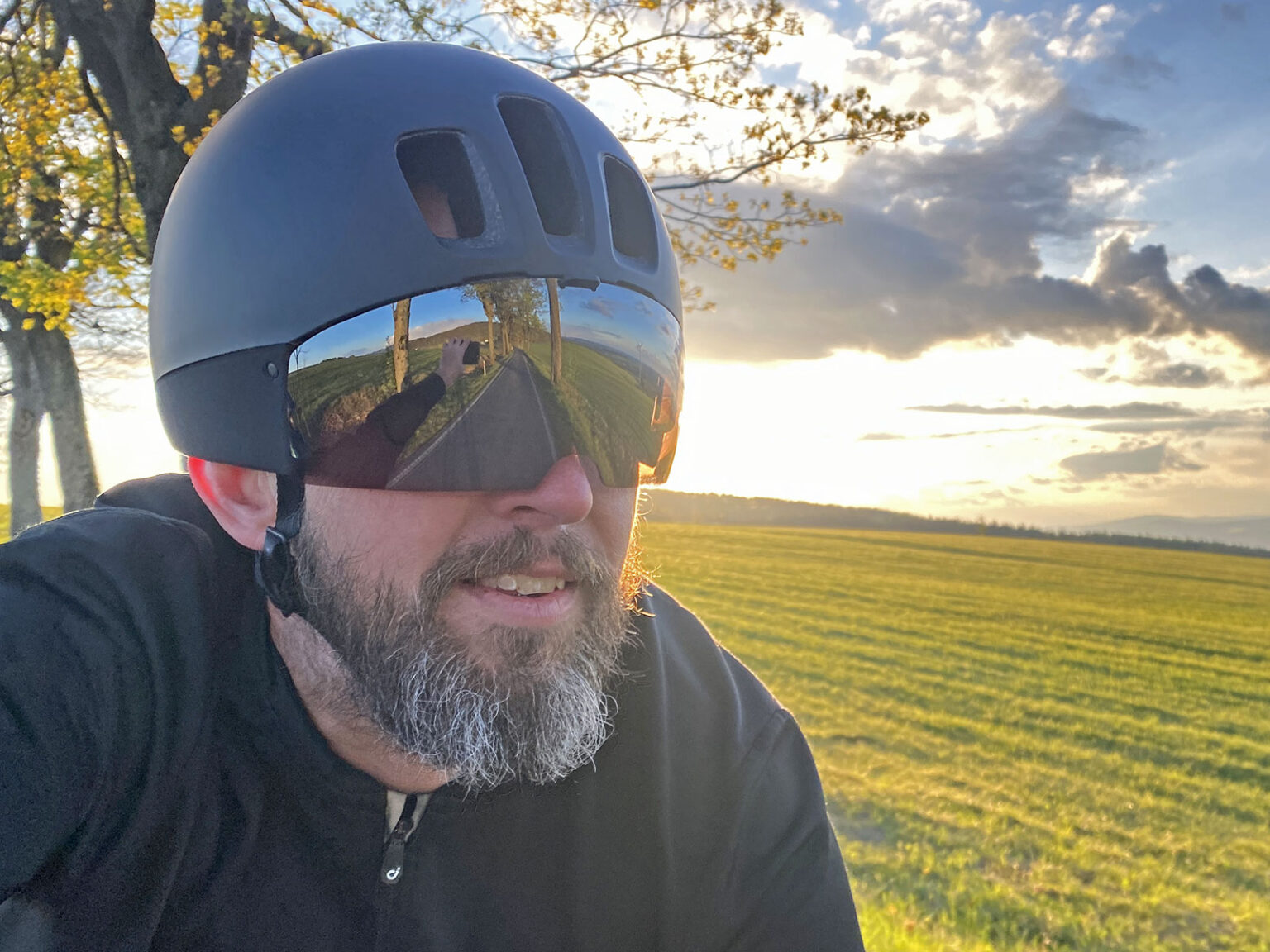
Obviously, it’s a bubble of a helmet on top of my head. Its looks are surely going to spark some discussion. And not everyone is going to like it. It feels like a much more manageable mini Dark Helmet compared to the time-trialing Tempor or Aerohead II. Another one for the Spaceballs fans out there. And maybe we’ll see what the UCI says about it down the line. But, it’s approved for road racing now (and if the ear cowls were contentious, they are removable.)

My thinking though, is that I don’t have to look at it while riding. I just get the great view from inside the wraparound Clarity visor. I get the reduced wind noise. And I get those free 5W – at my “slower” speeds. Leave it to my riding buddies to debate how weird I look riding it.
Riding Review
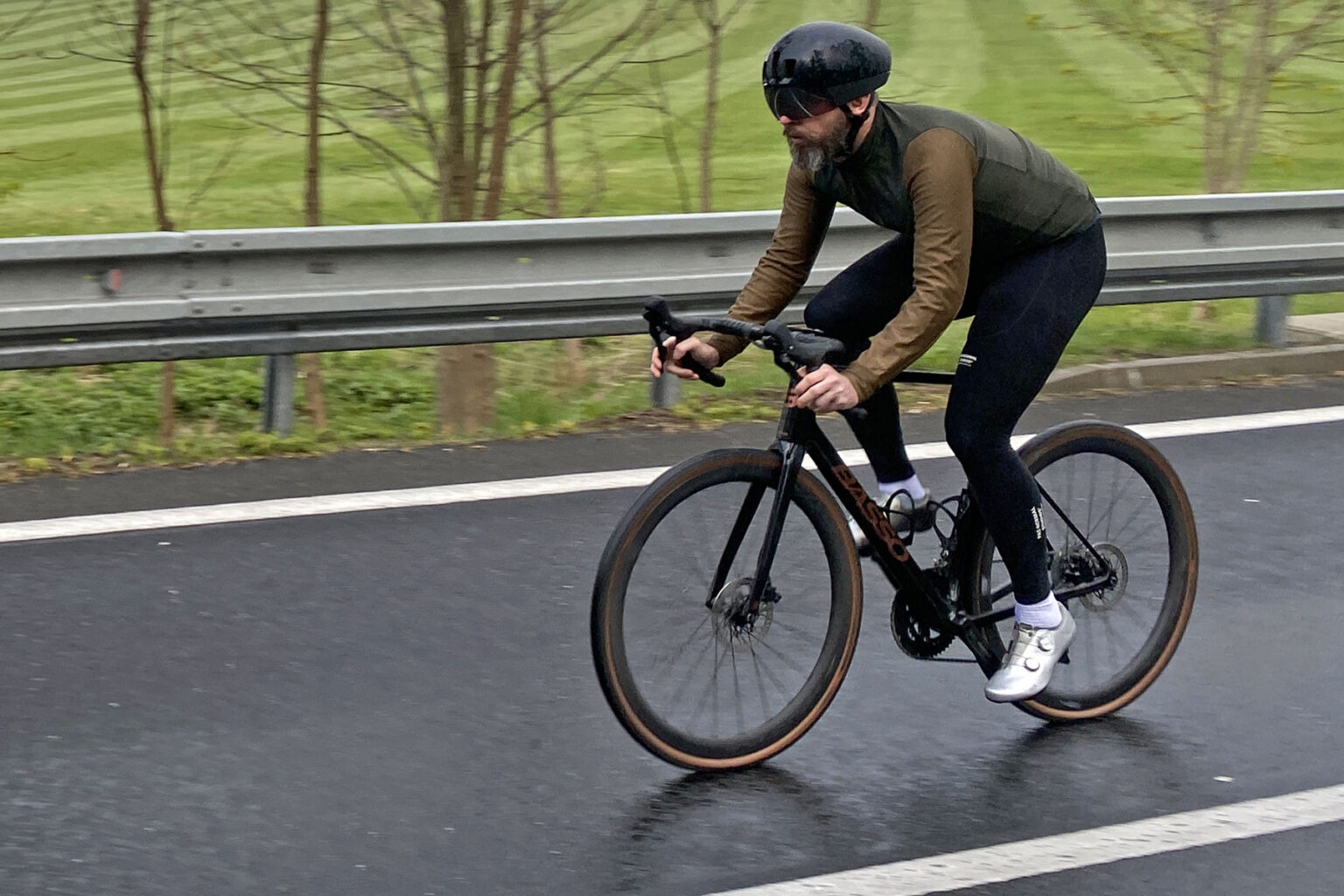
Out on the road so far, the new POC Procen Air feels like it has ample cooling. And nice protections from the rain. But I feel pretty sure I’ll still feel a bit stuffy inside in the heat of summer. A big part of that is that the large visor blocks a lot of wind from hitting your face. I notice the same thing while riding a mountain bike with goggles. It’s great to eliminate wind blowing in your eyes, but it prevents natural cooling across a large area of my face. And it’s harder to gauge the perception of speed without much wind hitting your face.
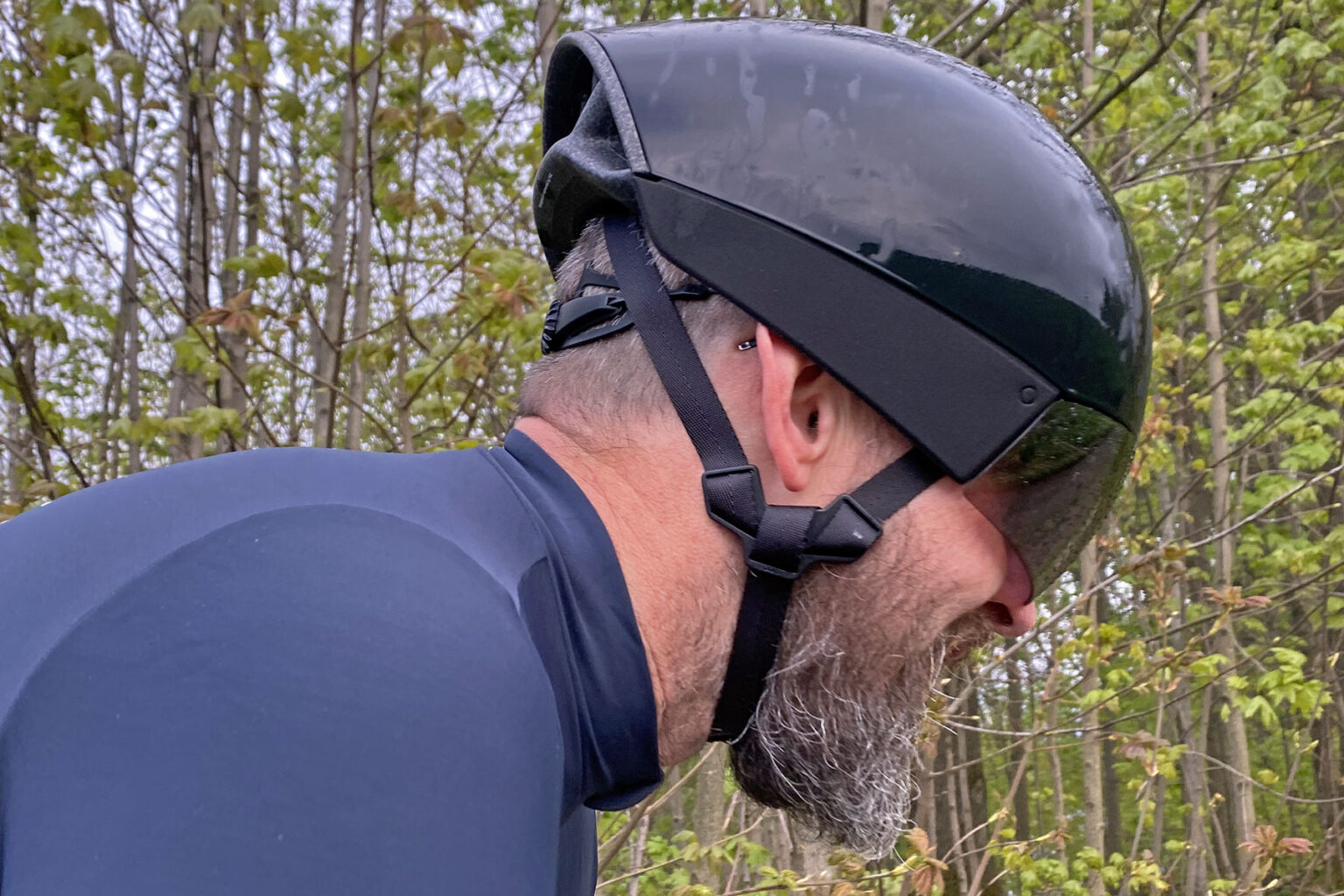
The EVA foam side cowls do gently touch the top of my (quite large) ears. With a very soft fuzzy inner face material. I generally only notice it when I am consciously adjusting the helmet on my head. (FYI, I’m wearing it as I type, if you want a mental picture.) But while riding, I can’t say I notice it at all. Maybe after several sweaty hours on the bike? All my rides with the Procen Air have been under an hour so far. But I don’t feel like it will be an issue. And the slightly reduced wind noise is certainly an added bonus.
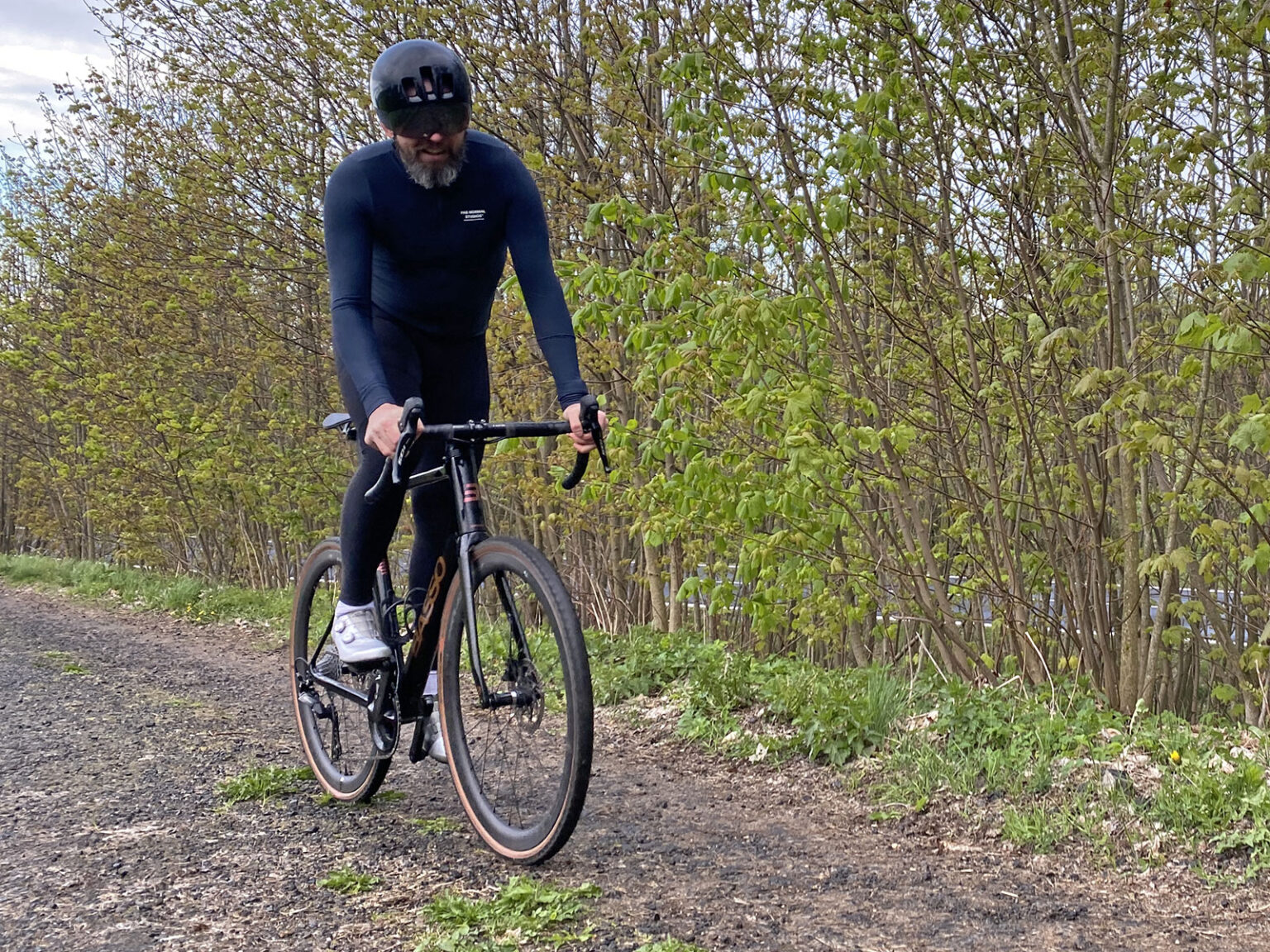
I think I will wear the new Procen Air a lot of road and – gasp – even gravel rides throughout the spring, fall & winter. I suspect that I’ll stick with a more airy lid for proper hot summer riding. Unless maybe I have a race I want to go extra fast in?
POC Procen Air – Pricing, options & availability
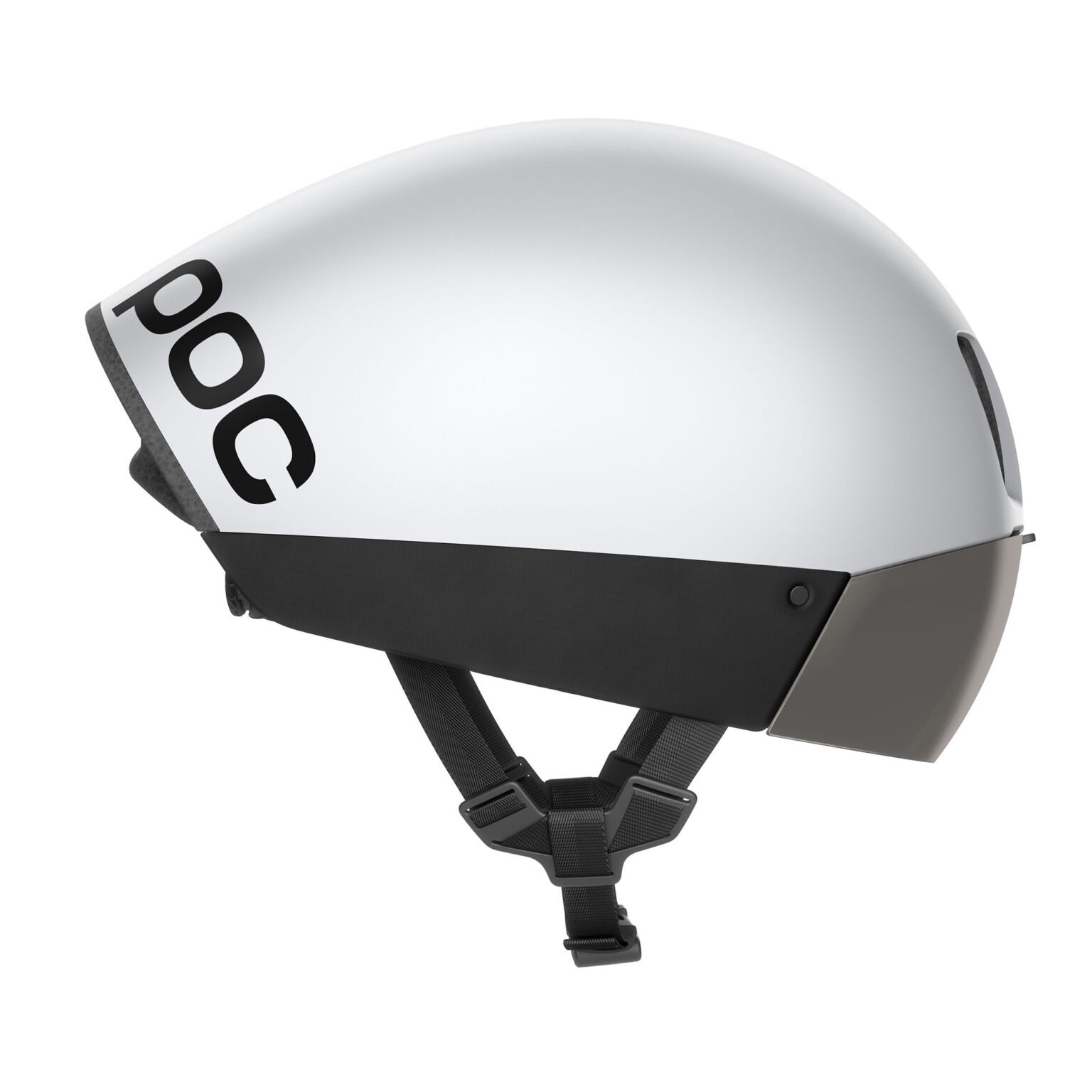
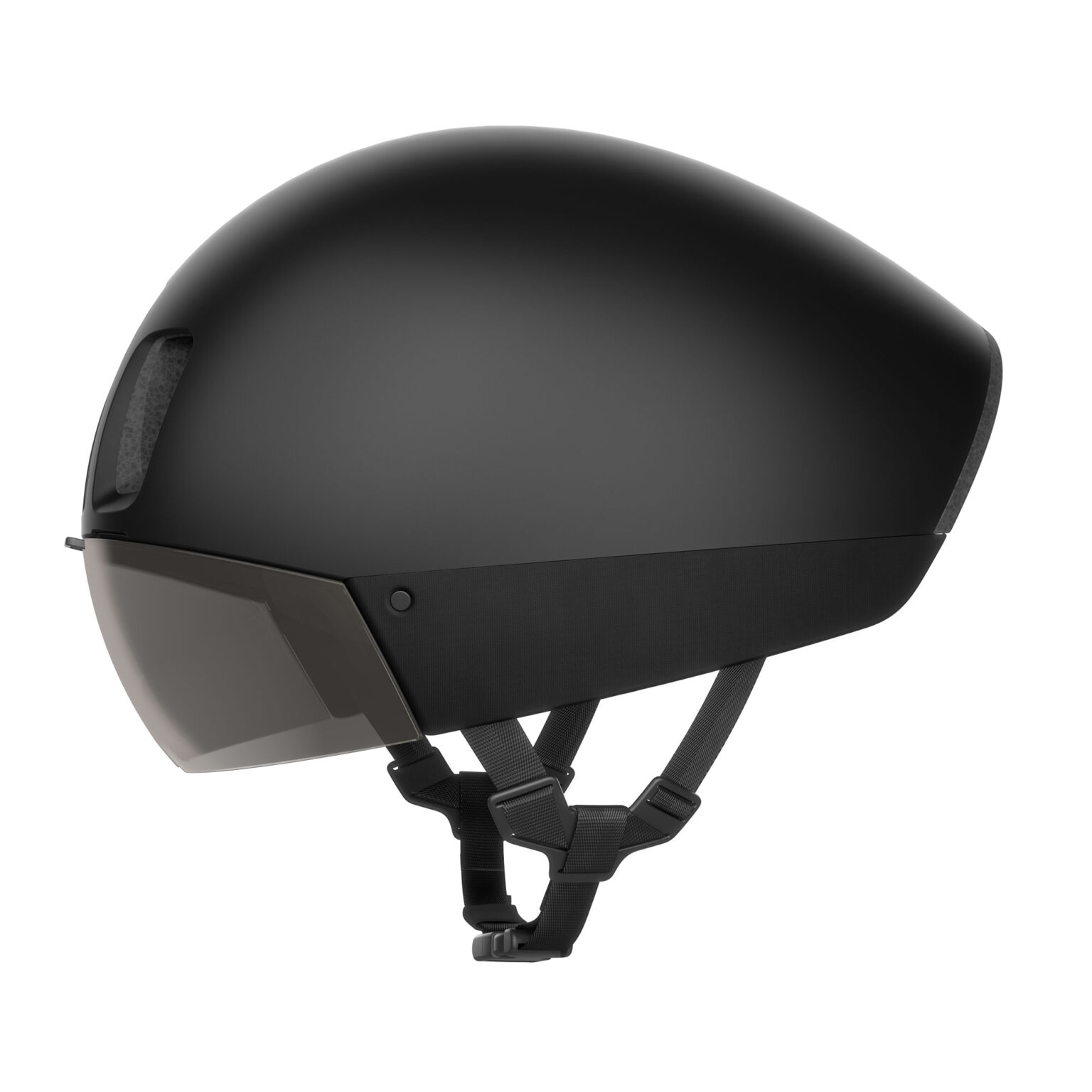
The new POC Procen Air aero road helmet sells for $400 / 400€. That include the helmet with both tinted Clarity Road & clear lenses, a soft helmet bag, and a foam protector that you need to use when storing the helmet so it doesn’t press on the visor & ear covers. The Procen Air comes in three standard POC sizes (S 50-56cm, M 54-59cm & L/56-61cm) and just two colors – glossy Hydrogen White or matte Uranium Black.

Pick one up globally starting today direct from POC or through their retail partners. And spark some controversy as you go faster in the group ride and break away in the local races.
